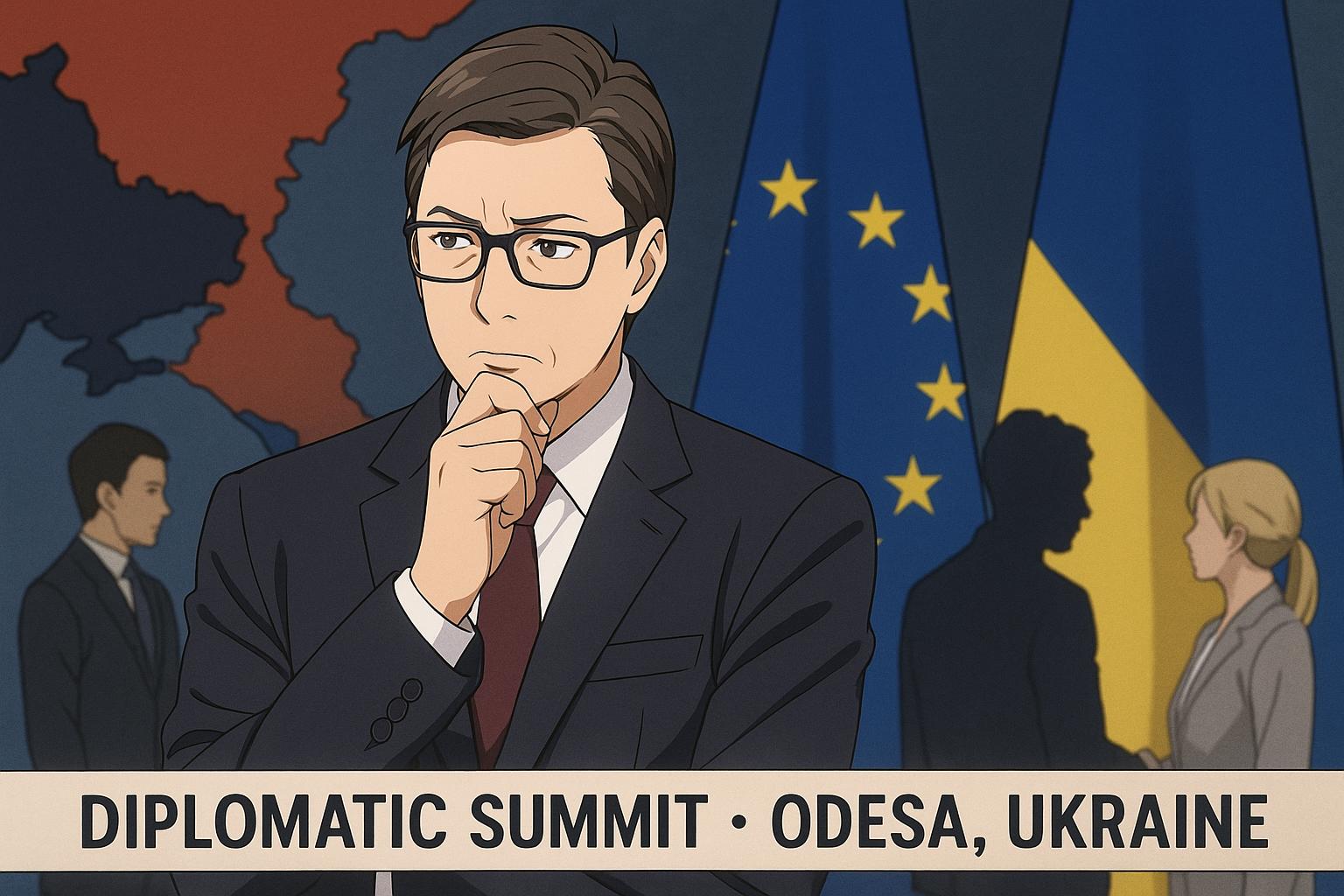Serbia’s President Aleksandar Vučić made headlines with his unexpected visit to Ukraine this past Wednesday, which marked his first foray into the war-torn nation since taking office over a decade ago. He attended a summit in Odesa aimed at enhancing European support for Ukraine amid its ongoing conflict with Russia. However, despite the significant backdrop of the event, Vučić notably abstained from signing a joint declaration that called for tougher sanctions against Moscow, a decision that underscores Serbia's complicated geopolitical stance.
The summit saw participation from leaders across 12 Southeast European nations, offering Vučić a platform to showcase Serbia's aspirations towards European Union membership. He declared that joining the EU remains a priority, yet his reluctance to endorse the anti-Russian measures sought by other attendees reveals the complex relationship Serbia maintains with Russia. This relationship is characterised by dependence, particularly in energy supplies, and highlighted by Vučić's participation in a Victory Day parade in Moscow just a month prior, an act that drew significant condemnation from EU officials.
During his visit, Vučić remarked that signing the declaration was "not easy and simple for us," especially referring to its content regarding sanctions. He did, however, express gratitude towards Ukrainian President Volodymyr Zelenskyy for the hospitality extended to him during his visit. This diplomatic balancing act is further complicated by recent allegations from Russia accusing Serbia of covertly supplying arms to Ukraine, a charge that Belgrade has neither confirmed nor denied. Instead, Serbia has promised to investigate the claims, which Russia alleges involve NATO intermediaries.
Western diplomats have been watching Serbia's manoeuvering closely, particularly as EU foreign policy chief Kaja Kallas has stressed the necessity for Serbia to choose between deepening ties with the EU or continuing its partnership with Russia and China. Following Vučić's earlier visit to Moscow, where he met with both Russian President Vladimir Putin and Chinese President Xi Jinping, concerns within the EU have intensified regarding Serbia's commitment to reforms vital for EU integration.
Yet, despite these complexities, the dynamics during the summit appeared cautiously optimistic. Ukrainian officials, including President Zelenskyy, refrained from confronting Vučić directly about his diplomatic hesitations. They acknowledged the importance of Serbia’s nominal support for Ukraine’s territorial integrity, even as tensions brew over allegations of Serbian arms supplies.
In recent commentary, analysts have suggested that Serbia's balancing act may no longer be sustainable, particularly given the pressure from the West regarding its close ties with Russia amidst the war in Ukraine. The ongoing geopolitical chessboard requires a calculated approach from Belgrade, one that may ultimately need to resolve the tension between its historical alliances and contemporary realities.
President Vučić's visit to Ukraine thus represents both a significant diplomatic overture and an ongoing challenge for Serbia's aspirations on the European stage, a dance that may not end without significant shifts in geopolitical allegiances.
📌 Reference Map:
- Paragraph 1 – [1], [2]
- Paragraph 2 – [1], [5]
- Paragraph 3 – [2], [4]
- Paragraph 4 – [6], [7]
- Paragraph 5 – [3], [4]
- Paragraph 6 – [6], [7]
Source: Noah Wire Services
